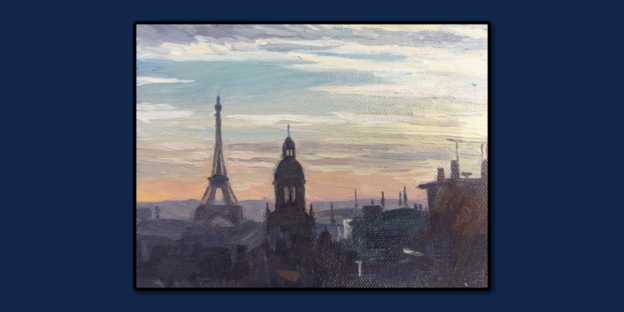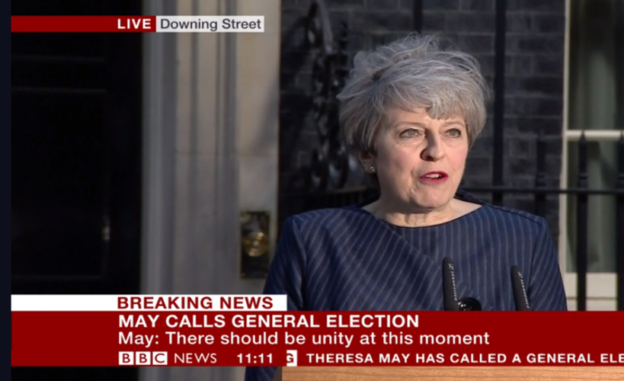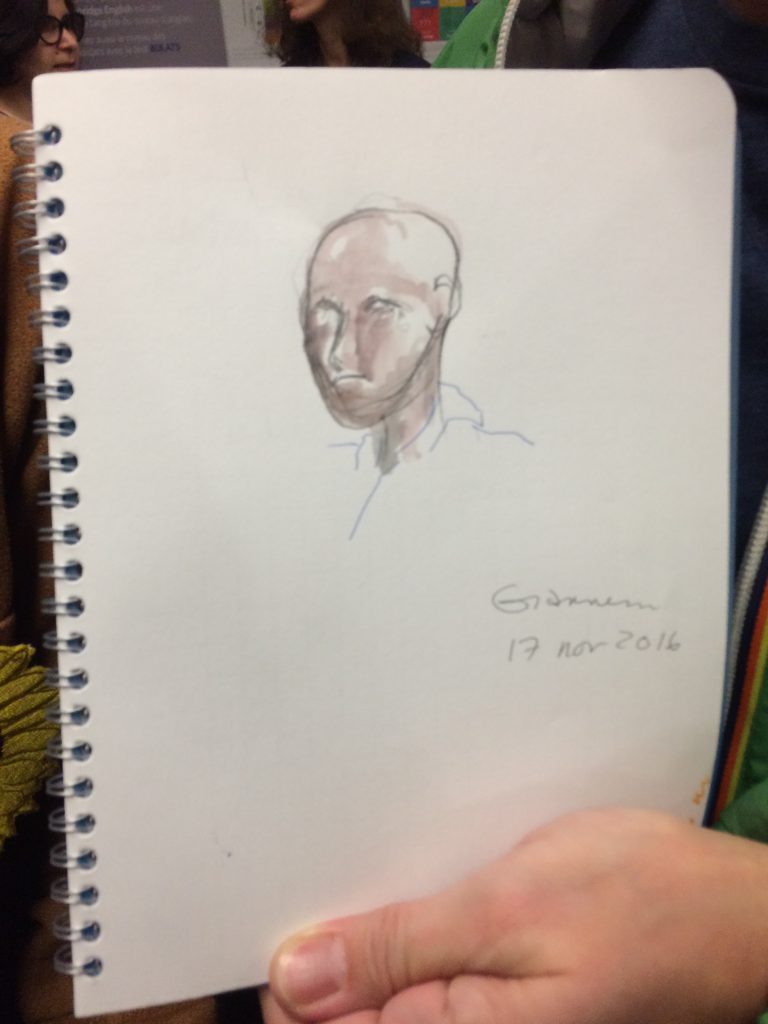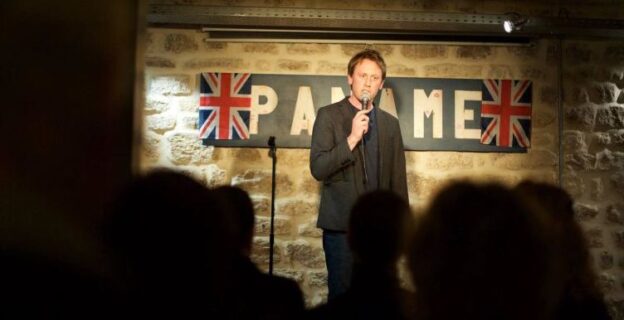Talking about language with one of the world’s top linguists, Professor David Crystal.
![]() [DOWNLOAD]
[DOWNLOAD]
Introduction
Hello everyone, thank you for choosing to listen to this episode of my podcast. I am particularly pleased to be able to present this episode to you. It is, in fact, a privilege for me to say that today on the podcast I am talking to Professor David Crystal.
I’m now going to give a quick introduction just to make sure that you are all fully aware of the calibre of this guest and to emphasise to you just how lucky we are to have him on the podcast today.
According to The Guardian newspaper, David Crystal is the world’s foremost writer and lecturer on the English language.
He isn’t an English teacher, but he is an expert on linguistics. That’s the study of language and all the issues relating to it.
David Crystal
David Crystal has a worldwide reputation and has published something in the region of 120 books including numerous academic reference works and encyclopedias of language, and books for the general reader covering topics such as English grammar, spelling, punctuation, accents, connections to Shakespeare, the influence of technology and the development of language throughout history.
He is currently patron of the International Association of Teachers of English as a Foreign Language (IATEFL) and the Association for Language Learning (ALL), president of the Society for Editors and Proofreaders and the UK National Literacy Association, and honorary vice-president of both the Institute of Linguists and the Royal College of Speech and Language Therapists.
He is honorary professor of linguistics at the University of Wales and in 1995 he was on the Queen’s honours list when he was awarded the Order of the British Empire (the OBE) for services to the English language. The OBE is the second highest honour which you can receive from The Queen – the highest being the knighthood or damehood.
So he’s Britain’s favourite language expert and he regularly makes appearances at literary festivals and teaching conferences, appears on British radio and television, writes articles for newspapers and magazines and researches all kinds of language-related topics.
But the main thing he does is to write books…
David’s Books
Some of his most popular books include:
- The Cambridge Encyclopedia of the English Language
- The Oxford Illustrated Shakespeare Dictionary
- The Story of English in 100 Words
- You Say Potato: The Story of English Accents (written with his son Ben)
- Wordsmiths and Warriors: The English-Language Tourist’s Guide to Britain (Written with his wife Hilary)
- Txting: The Gr8 Db8
- Pronouncing Shakespeare: The Globe Experiment – a fascinating project investigating how English was pronounced by the original actors in the Globe Theatre when Shakespeare was alive
- Spell It Out: The Curious, Enthralling and Extraordinary Story of English Spelling
- Just A Phrase I’m Going Through: My Life in Language (which is both his autobiography and a highly accessible introduction to the field of linguistics)
- And from this year “Making Sense: The Glamorous Story of English Grammar”
Many of those titles can be purchased as ebooks from David Crystal’s website – www.davidcrystal.com or from any good bookseller. There are also audiobook versions which are read out by the man himself.
David Crystal’s writing is clear, entertaining, informative and simply a pleasure to experience. The same can be said about his public speaking. I’m always impressed by his ability to take a complex academic subject like linguistics and turn it into the sort of thing that anyone can understand and enjoy.
I met David once at a teaching conference where he presented Andy Johnson and me with an award for a presentation we did. I had a chat with him afterwards and was delighted to discover how down-to-earth and friendly he is and I’ve always wanted to interview him for this podcast, but it’s only recently that I actually plucked up the courage to ask him. Thankfully he agreed.
David Crystal is a nothing short of a national treasure and I can’t believe I’m talking to him on my podcast.
Right – I think you get the idea now – he’s kind of a big deal for anyone interested in language and language teaching and so without further introduction, here is my conversation about language with Professor David Crystal.
Questions for David Crystal
Grammar
Your recent book from this year is called Making sense: the glamorous story of English grammar.
Is grammar really ‘glamourous’?
In my experience, a lot of learners of English feel a bit bored or intimidated by grammar, leading some teachers out there to say that you can learn English without grammar – learn English without thinking, etc.
Do you think it’s possible to learn English as a second language without studying grammar?
I know you’re not actually an English teacher, but do you have any tips for learners of English who want to improve their grammar?
You recently wrote a political history of grammar in the UK as a supplement to your book “Making Sense”.
What relationship does the average Brit have with grammar today, in your experience?
Has this attitude changed over the years? How has it changed?
Language Decline
I was recently having a conversation about language with a couple of friends on this podcast and we arrived at several questions that we couldn’t really answer. I thought you might be able to help.
People often complain about the so-called decline of the English language – citing things like poor grammar, punctuation, spelling, acronyms or text-speak as evidence that standards of English are slipping. Do you agree with that? Are standards of English declining? How do we even measure that?
People seem to be afraid that what they see as falling standards will result in “the death of the English language”. Has a language ever completely “died out” due to declining standards? What causes languages to die?
Are we better or worse at communicating than we used to be? (answered later)
‘Right’ and ‘Wrong’
Are you bothered by those so-called ‘errors’ in English that make some people angry?
Non-native speakers influence on English
My mate Paul says (as a bit of a joke) that because there are more non-native speakers of English in the world than native speakers, we’re actually the ones who are using the language incorrectly. E.g. because more Chinese people pronounce some English words in a certain way, it’s the native speakers who are pronouncing those words wrong.
Does he have a point or is he talking nonsense like he usually does?
French Pronunciation example
My French students often feel bad about their pronunciation because it’s so ‘French’. We understand everything that they say, but they’re really hung up on the fact that they sound so French – e.g. they can’t pronounce TH sounds in words like strengths, clothes, thirty three etc and it seems to be impossible to fix it.
Do they need to feel so bad about it?
How should my listeners feel about their relationship with English, and the version of English that they speak?
End of part 1
That’s the end of part 1. The conversation will continue in part 2 where you’ll hear me asking some questions sent in by listeners, and there were some really great questions including predictions about English in the future, the role of AI in language learning, the impact of Brexit on English in the world, and the way Donald Trump and Barack Obama use English.
I hope you’re enjoying listening to this, and that you’re able to follow some of the slightly complex points being made.
David gave so many really interesting answers and made some very important and useful points, and he continues to do that in part 2.
I think David speaks very clearly, with that slightly Welsh or Scouse twang in his voice. He lives in Hollyhead, in Northern Wales, not far from Liverpool, and he lived in Liverpool for a while as a child, which accounts for the slight accent that he has, if you noticed that.
As he said, his accent is a mix of different things, caused by the time he has spent living in different places and interacting with different people – RP speakers in the south east, locals in Wales and Liverpool and so on. It all contributes to the way he speaks. He also happens to be very articulate and I really admire the way he expresses his thoughts so clearly.
I hope you agree that we really are rather lucky to have David Crystal on the podcast and I think it’s worth listening to this episode several times so you can really absorb everything he’s saying because he really does know what he’s talking about and there’s a lot of knowlege there.
I think I should do a follow-up episode to this in which I just restate the main points that he made, just to consolidate it all, and I plan to do that. I could also talk about some of the questions which I didn’t have a chance to ask David.
I also hope you noticed that David Crystal helped to clear up some of the things I was discussing with Amber and Paul in episode 452. I should go over those things again if I do a follow-up episode, just to make it “crystal clear” – pun intended. I totally intended to make that joke and I think you should know it’s a brilliant joke which nobody has ever made before and this is sarcasm but it also isn’t.
Don’t forget to check out www.davidcrystal.com for all his work, his blog, videos of him speaking publicly and more information, including the opportunity to send him a message if you want to.
I strongly recommend getting some of his books, which should be available from any good bookseller. You could try “Making Sense: The Glamorous Story of English Grammar” for example.
Also, don’t forget that you can get audiobook versions of his work.
For example, I listened to You Say Potato – the one about accents in the UK and I think the audiobook is better than the printed book because you can actually hear his son Ben doing all the accents. You could get that as part of a trial with Audible – and remember I have that deal with them – you can get a free audiobook if you go to www.audibletrial.com/teacherluke or click an audible logo on my site. They’ve got a lot of DC’s work there. Start a trial, download your audiobook, listen to it using the Audible app on your phone and you can cancel the membership and not pay anything, or continue your membership for about $15 dollars per month and get another free book next month and so on…
So, that’s the end of part 1. Part 2 should be available for you very soon and you can hear David answering questions from listeners, and that’s brilliant because the questions were very diverse and David Crystal answers them – what more do I need to say? I still can’t believe I spoke to him on the podcast. I need to contact other awesome people for interviews now I think.
Thank you very much for listening to this. Don’t forget to join the mailing list to keep up with every new episode and to get convenient access to the page for each one where you’ll find various bits of supporting information, transcriptions, links, videos and the comment section. Just visit teacherluke.co.uk and pop your email address in the subscription form and Bob’s your uncle.
I look forward to reading your comments in the comment section.
Reminders
LEPsters are still getting together and spending time socialising in English.
In Moscow there is a group that hangs out every Sunday. Their FB group is called “Conversational English for Free – Moscow LEP Club”. https://www.facebook.com/groups/734996946664425/
Also in St Petersburg there is a similar group which gets together on Sundays. You can find them on FB by searching for “SPB LEPsters Conversational Club” – I understand they have get togethers on Sundays. Kristina from Russia who won the LEP Anecdote Competition last year often takes part – friendly people, speaking English, playing games, hanging out. https://www.facebook.com/spbenglishLEPclub/
LEPsters in Tokyo have got together a number of times, and I attended one in April to do some stand up – you can hear all about that in my Trip to Japan episodes (part 2).
Also, recently a group got together in Prague in the Czech Republic – in fact you can hear their conversation because it was recorded and published on Zdenek’s English Podcast.
Again I’m flattered because they talked mainly about LEP – including, shock horror, their least favourite or “worst” episodes of the podcast.
Listen to both episodes below.
Also, if you’re in Spain I have heard rumour that there will be at least one meetup group getting together there, somewhere, sometime soon.
If you’re thinking of setting up something similar, let me know because I can publicise it on the podcast and get the word out.
Speak to you in the next episode!
Luke


 Oil painting by Sasha Sokolova
Oil painting by Sasha Sokolova





























